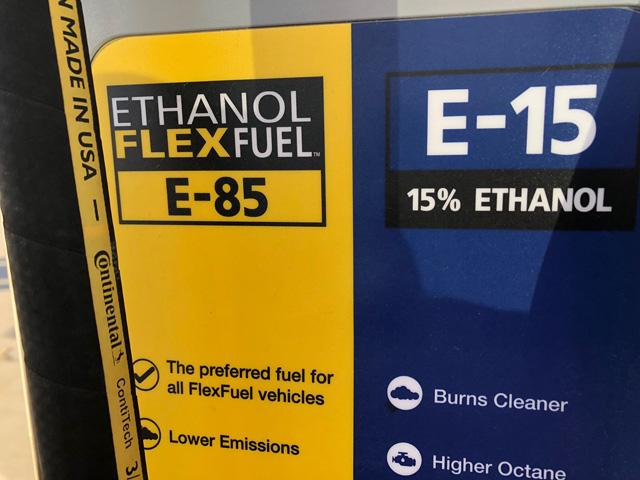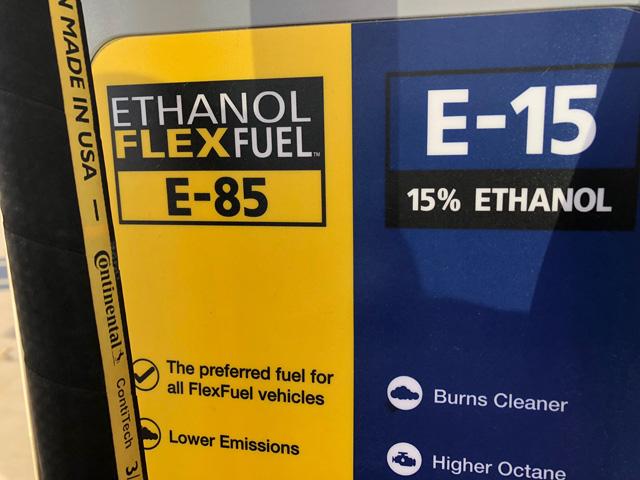Ag Policy Blog
The RFS and President Biden's Low-Carbon Paradox
President Joe Biden's White House remains determined to address climate change, as the Biden-Harris administration on Friday released a "comprehensive, government-wide strategy" to look at the systemic risks climate change poses for families, businesses and the economy. It's a 40-page report highlighting extreme weather events and the financial costs of climate change. The report reiterates the importance of shifting to a "low-carbon economy."
The Biden-Harris administration repeats these themes over, and over, and over about climate change and low-carbon energy. The report notes released Friday stresses the importance of a smooth transition to "low-carbon transportation and energy options." Yet, "the climate crisis also presents a generational opportunity for the United States to emerge as a leader in creating a net-zero economy."
The White House report looks at potential financial costs to the federal government in areas such as flood insurance and, yes, crop insurance. The cost of crop insurance is going up, and "The program's exposure to weather-related events has grown over time. It is estimated that the Federal fiscal burden of providing subsidized crop insurance to American farmers could increase by billions of dollars each year by late-century due to the effects of climate change."
White House: A Roadmap to Build a Climate-Resilient Economy:
In summary, the White House is concerned about greater financial risks of not acting to reduce greenhouse-gas emissions. So with such statements of importance coming from the top of the White House, why does the White House Office of Management and Budget (OMB) have such a hard problem completing the EPA rule for annual blend volumes for the Renewable Fuels Standard?
EPA sent over the proposed RFS blend volumes (Renewable Volume Obligations, or RVOs) to the White House OMB for review on Aug. 26. The Trump administration didn't set RVO numbers in 2020, and the Biden administration has been slow to retroactively set the 2020 numbers, or 2021, or propose blend volumes for 2022. Somehow, The White House is still reviewing the proposed standards, even as the RFS blend volumes are supposed to be finalized by Nov. 30. https://www.reginfo.gov/…
P[L1] D[0x0] M[300x250] OOP[F] ADUNIT[] T[]
Supposedly, a proposed rule gets greenlighted by OMB, is published by the agency in the Federal Register, there's a comment period, then the agency comes back for a final rule. For a minimum 30-day comment period on the proposed rule, OMB would need to get the RFS numbers out ASAP to hit a deadline at the end of November.
This translates into the administration appearing seemingly gridlocked over the annual regulatory requirements for the one law on the books that sets real targets to reduce greenhouse-gas emissions by blending higher volumes of renewable fuels to offset petroleum emissions.
Under the RFS, advanced biofuels and biodiesel must have at least 50% GHG reductions compared to petroleum. All biofuels must reduce emissions at least 20%. https://www.epa.gov/…
Rural lawmakers, biofuel groups and the National Corn Growers Association have each made pitches to the Biden administration about the president's own claims regarding eh importance of low-carbon energy. The Renewable Fuels Association has made the case that higher blend volumes of ethanol would also help address rising fuel prices. After all, ethanol is trending at a lower cost than gasoline.
"Right now, there are over 3 billion gallons of low carbon, American-made ethanol production capacity that could be unleashed by your administration to help families fight inflation pressures," the Iowa Corn Growers Association and Iowa Renewable Fuels Association wrote the White House on Friday, highlighting ethanol capacity that right now could be ramped up.
Yet, despite the push to set higher RVOs and re-write the court-rejected Trump rule on E15, the White House has been talking to the oil and gas industries about how to bring down fuel costs. Bloomberg, Reuters and others report "multiple cabinet members" met earlier this week with the fossil fuels industry to discuss rising gas prices.
Looking at gas prices regular fuel with no ethanol is selling at an average of $3.30 a gallon right now; E10 usually sells at a dime cheaper, $3.20 a gallon; E15 is selling at an average of $2.96 a gallon in Iowa, and the average E85 price is $2.49 a gallon.
So, the Biden administration really wants a low-carbon economy, wants to transition in that direction, is holding up the one law that actually requires liquid fuels use lower-carbon fuels, and is having talks with the industry groups that have fought low-carbon fuels since the RFS was first passed in 2005.
There seems be some sort of flaw in the administration's overall strategy.
Chris Clayton can be reached at Chris.Clayton@dtn.com
Follow him on Twitter @ChrisClaytonDTN
(c) Copyright 2021 DTN, LLC. All rights reserved.






Comments
To comment, please Log In or Join our Community .